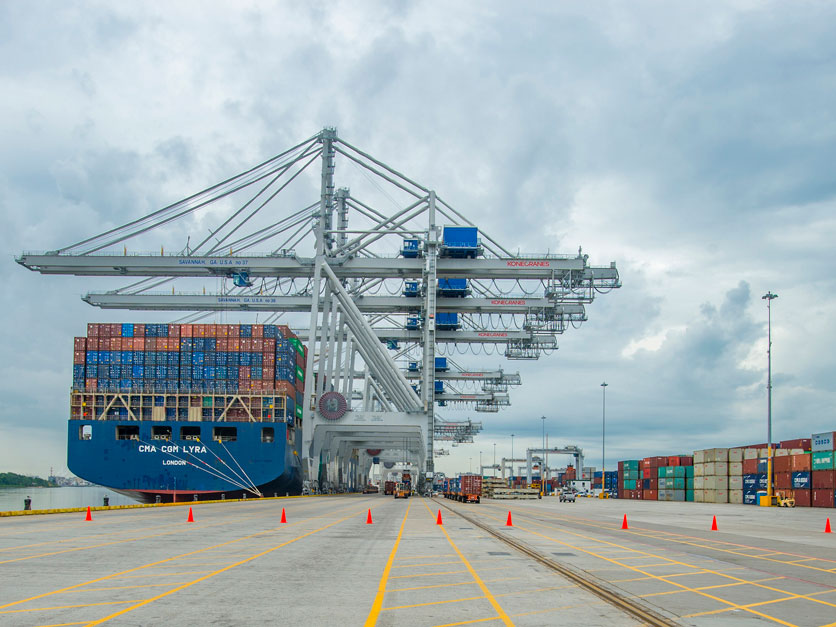Farm production costs continue to soar, and two Kansas lawmakers see a chance to do something about them. Sen. Roger Marshall and Rep. Tracey Mann are introducing legislation today to create a process to obtain waivers of U.S. duties on imported fertilizer.
The duties have effectively stopped U.S. imports of phosphate fertilizer from Morocco and Russia, and the Commerce Department is expected to issue final rulings later this year on duties for urea ammonium nitrate, or UAN, from Russia and Trinidad and Tobago. Russia has cut off all of its fertilizer exports, but there are still plenty of foreign supplies impacted by U.S. duties.
Why it matters: Fertilizer costs will be as much as 80% higher this year than last, according to a study by Texas A&M University’s Agricultural and Food Policy Center.
“Fertilizers and other inputs have been at an all-time high, and the war in Ukraine promises to drive up the price of products even more,” said National Corn Growers Association President Chris Edgington.
After speed bump, House pushes through $1.5T spending bill
Congress is on the way to funding the government for fiscal 2022, more than five months after the budget year began. The House passed a 2,741-page, $1.5 trillion omnibus bill late Wednesday to fund the government through September.
The bill provides USDA an extra $550 million for rural broadband to go with the $2 billion enacted as part of the bipartisan infrastructure law enacted last fall. Notably, the bill also requires USDA to create a cattle contract library to help producers negotiate sales.
House Democratic leaders had to strip out $15 billion in new COVID aid after progressives objected to cuts that were used to pay for it. The House then approved the overall spending bill.
By the way: Meat processors are unhappy with a provision that appears to require USDA to set up the cattle contract library without gathering comments first.
"Congress and the administration say they value transparency in the beef and cattle market; they should value the same when they create another onerous USDA program with the sole purpose of collecting private business information and making it public,” said Sarah Little of the North American Meat Institute.
Conservation group: Leave CRP alone
The National Wildlife Federation has come out against proposals to use the Conservation Reserve Program to increase crop acreage in response to the Ukraine war. The top Republican on the Senate Ag Committee, John Boozman of Arkansas, has called for delaying signup for the program. And leading economist has called for opening CRP to emergency cropping this year.
Julie Sibbing, NWF’s associate vice president for land stewardship, said CRP “works for producers, downstream communities and wildlife. Opening these marginal lands to temporary crop production would add little to our grain supplies but leave huge costs to taxpayers, climate, water and wildlife.”
By the way: The war isn’t having a major impact on global grain stocks so far, according to a USDA report issued Wednesday. But it’s not yet clear how much of their wheat crop can get harvested and exported. And there are fears farmers in Ukraine won’t get crops in the ground this spring. Ukraine is a major global source of corn, wheat and sunflower oil.
GOP reps call for delay on WOTUS rulemaking
More than 200 House members are urging the Biden administration to halt its efforts to rewrite the definition of “waters of the U.S.” in the Clean Water Act because the Supreme Court plans to address the issue.
In a letter to Environmental Protection Agency Administrator Michael Regan and Assistant Secretary of the Army for Civil Works Michael Conner, the 201 lawmakers say a decision from the court in a case involving two Idaho landowners “will have profound impacts on the agencies’ rulemaking process.”
The court agreed in January to take up Sackett v. EPA, to examine whether the 9th U.S. Circuit Court of Appeals was correct to use the “significant nexus” test set forth by former Justice Anthony Kennedy in ruling for EPA against the landowners in a wetlands enforcement case.
Arguments are expected to be held this fall.
Rider preventing ESA listing of sage grouse in omnibus
Environmental groups are criticizing the inclusion in the omnibus spending bill of a rider that would block listing of the greater sage-grouse as an endangered species.
The rider, which has been in appropriations bills since 2014, prevents the Fish and Wildlife Service from considering the bird for protection under the Endangered Species Act, “even as their populations plummet at unsustainable rates,” Defenders of Wildlife said. “A federal study found that they have declined 80% since 1965.”
The Bureau of Land Management is considering revisions to land-use plans in sage-grouse habitat, which make up about 78 million acres of BLM land, or about 45% of the bird’s habitat.
Brazil on pace for record corn production
Forecasters continue to cut estimates for Brazil’s soybean production this year, but the country is still on track to produce a record corn crop with its second “safrinha” crop leading the way, according to the latest data out of USDA’s Foreign Agricultural Service.
Overall, Brazil is expected to harvest a total of 114 million metric tons of corn for the 2021-22 marketing year – a 27-million-ton increase from 2020-21.
Brazilian farmers started planting the second-season corn after their soybean harvest in February and that is expected to continue through March.
She said it: “I would like to express our respectfulness to your decision, that allows UNAF to join Copa and Cogeca as a partner organisation. Unfortunately, it happens in the light of the on-going war in Ukraine, with our country paying the high price for it” — Mariia Dudikh, director of the Ukrainian National Agrarian Forum, reacting to the decision by the European farm organization Copa and Cogeca to induct her group as a partner, said Wednesday.
Philip Brasher and Bill Tomson contributed to this report.




